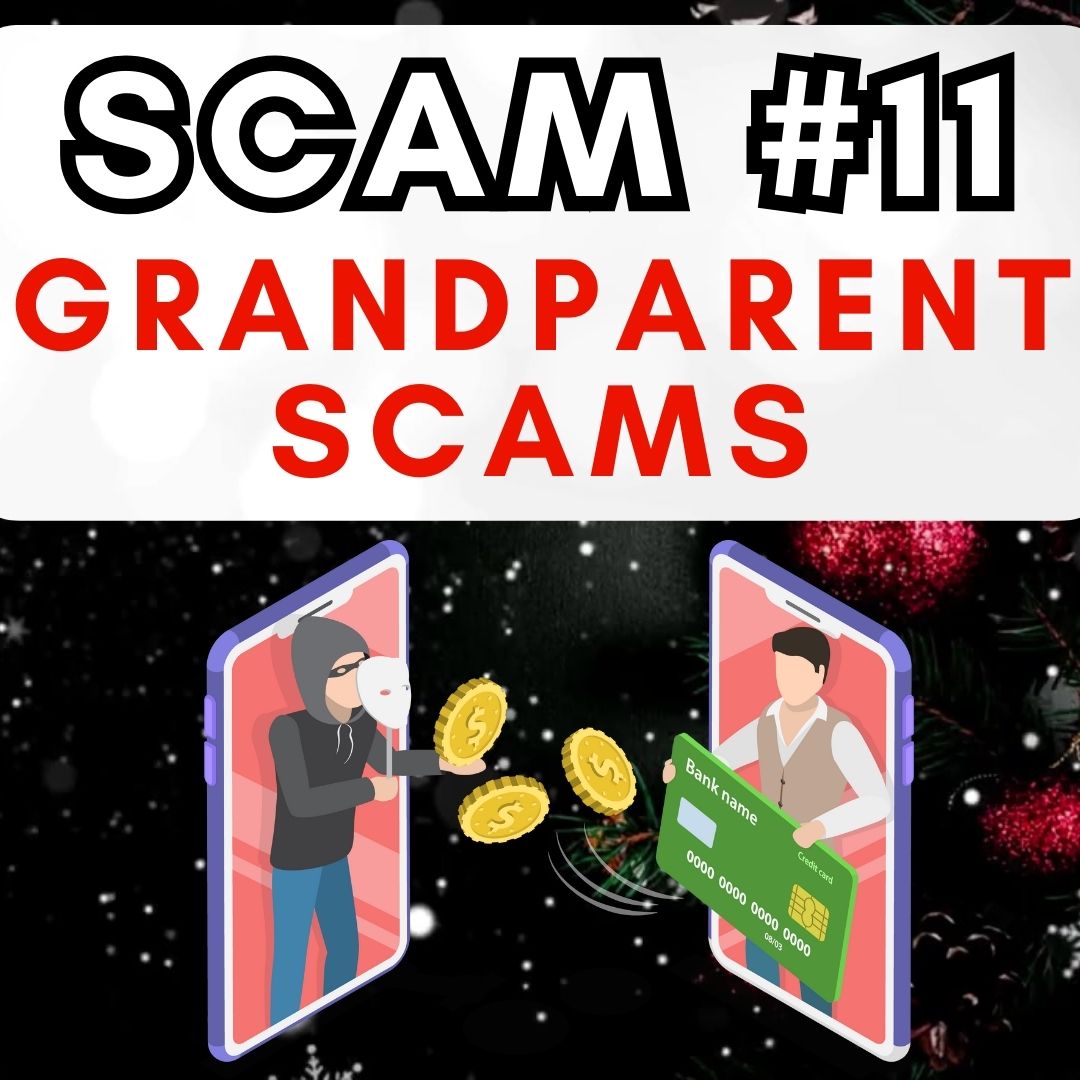The 12 Scams Of Christmas: How To Protect Yourself This Holiday Season
Scams are epidemic these days as criminals use every conceivable avenue to separate consumers from their cash. It makes sense that they frequently pretend to be big companies or institutions affiliated with millions of people (potential victims, in their minds).
Here you'll find more information on the 12 Scams of Christmas; these scams are happening year round, but experts say are especially prevalent around the holidays.

False membership renewal messages are trending. Because many customers don’t know when their membership expires, these messages can seem real. Criminals create real looking websites for you to share your payment information.
So how can we protect ourselves? Whenever renewing a membership or dealing with a suspicious charge from a retailer, go to their official website or customer service lines. Don’t rely on links or phone numbers that are sent to you. These can be connected to criminals.

These scams start with a text claiming your package is on hold because of an issue. They claim to be from the Postal Service, UPS or FedEx, and they include a link to a website. Once there you’ll be asked to verify personal information or pay a postage or delivery fee.
So how can we protect ourselves? To avoid these scams never click on links or call phone numbers from random text messages. If you think there is an issue with a package you’ve ordered, go directly to the retailer’s website and check for yourself.

This is the season of giving, but telling the difference between a real charity and a con can be a challenge. Legitimate charities make a push at year-end for last-minute donations. Scammers know this and make their own push to line their pockets.
So how can we protect ourselves? Research the charity on sites such as give.org, or CharityWatch.org to make sure it’s legit and find out what percentage of donations are actually used to serve their mission.

Gift cards on store racks are easy prey for criminals, who can grab the cards, record the numbers off the back and return the cards to the rack.
So, how can we protect ourselves? Buy gift cards directly from the cashier. When you get a gift card, check the balance, take a picture of it, and use it sooner rather than later. Scammers also prefer gift cards as a form of payment from their victims. If anyone asks you to pay with a pre-paid gift card, cut off communication.

Who doesn’t want to give their loved ones the perfect holiday gift of a pet? But the desire to create a memory may lead to a scam they won’t soon forget, because scammers copy pet photos from websites and get you to buy by tugging at your heartstrings.
How can we protect ourselves? Shop locally for your pet. Meet the breeder - or adopt a pet in person at a local shelter. A seller that invents reasons why you can’t pick the pet up in person shouldn’t be trusted.

Online relationships are more common than ever. But beware, sometimes cupid is a con. The scammer will often profess their feelings for you before getting to know you. They may offer to visit if you can help cover their travel costs, then cancel those plans at the last minute and disappear with your money.
How can we protect ourselves? Most victims never see this crime coming, which is why it works so well. Anytime a love interest or new friend whom you’ve never seen in person asks for money, it’s most likely a scam.

More and more people do their holiday shopping online, but we’ve all seen the videos on the news of bold criminals stealing packages right off the front doorsteps of people’s homes – often during broad daylight. We call these porch pirates.
So, how can we protect ourselves? Avoid porch pirates by seeing if your packages can be held by the shipper in a nearby location, placed in a secure location on your property, or delivered to a UPS or Amazon drop box.

AI has allowed criminals to make these scams more realistic than ever with “deepfake” videos. With this technology, criminals create videos that look and sound like a celebrity is asking you to take an action, but it is actually computer generated.
How can we all protect ourselves? Posting on a celebrity's social media account might be exciting, but it could put you at risk. When it comes to your favorite celebs, recognize that an offer to connect with them personally is likely a scam. Just don’t do it.

Scammers impersonate representatives from the government to convince you that your bank account is compromised. They'll instruct you to withdraw money and convert it into gold, before sending a “courier” to collect the bars for safe storage. However, once your gold is picked up, they’ll cut off contact and disappear.
How can we protect ourselves? No legitimate entity is going to ask you to buy gold. Be wary if someone suggests that you must move your money to make it safe. While the involvement of couriers may make it appear legit, it’s a red flag.

Criminals impersonating utility companies may threaten to cut off service if payment isn’t made immediately. They create a sense of urgency so that you’ll act quickly to pay the alleged past-due balance.
So, how can we protect ourselves? If you get a surprise call from someone claiming to be from a “utility company,” hang up and contact your actual utility company to see if there is a problem with your account. No company will seek immediate payment.

Criminals know that fear is the best motivator, and nothing drives fear more than a loved one in trouble. That’s why scams targeting grandparents seem to never to go away.
How can we protect ourselves? If someone calls claiming to be your grandchild, or some authority figure calls to say your grandchild is in trouble and needs you to send money fast to resolve the problem, it’s likely a scam. Hang up and call your grandchild or a family member who would know his or her whereabouts.

Weight Loss Scams
Scammers know we want to lose weight before the holidays, which is why bogus diet products and programs rank first among health care scams. While there are legitimate diet and weight loss programs out there, many are scams.
How can we protect ourselves? Programs that claim you can lose weight while eating as much as you want are likely scams. Some encourage you to sign up for a free trial, but when you read the fine print, they automatically opt you into getting charged for products. Read everything before you make a move.
Have you or someone you know come across a scam?
The best way to prevent scams, is to share your story with others; whether you fell victim or avoided the scam. This way, people know what to be on the look out for. Share your story with AARP by clicking the icon below:
If you or someone you know has been a victim of a scam, check out AARP Fraud Watch NetworkTM. It is a free resource for everyone. With AARP as your partner, you’ll learn how to proactively spot scams, get guidance from our fraud specialists if you’ve been targeted, and feel more secure knowing that we advocate at the federal, state, and local levels to protect consumers and enforce the law.
Call Our Helpline If You Suspect a Scam
877-908-3360
Toll-free service is available Monday through Friday, 8 a.m. to 8 p.m. ET



